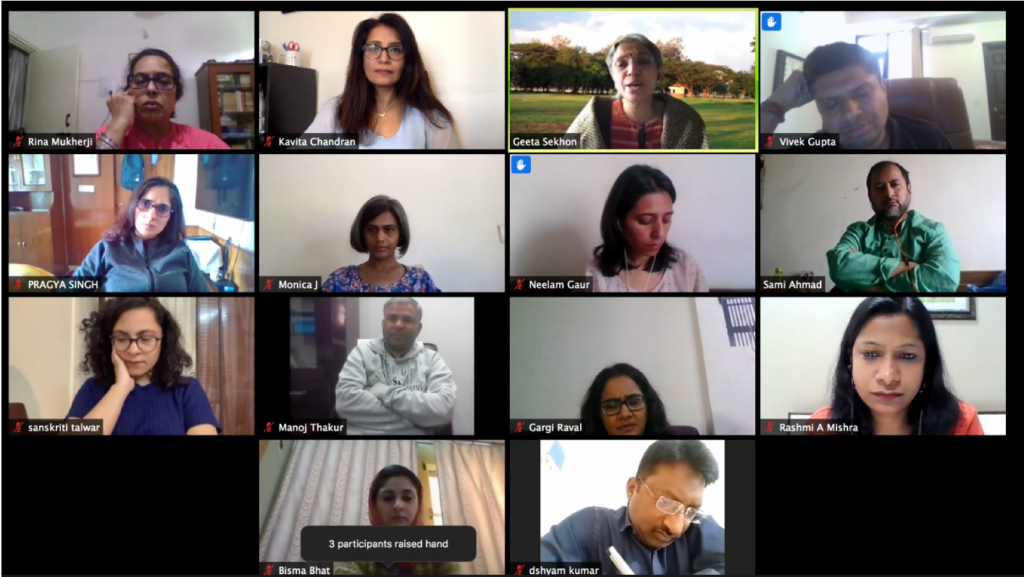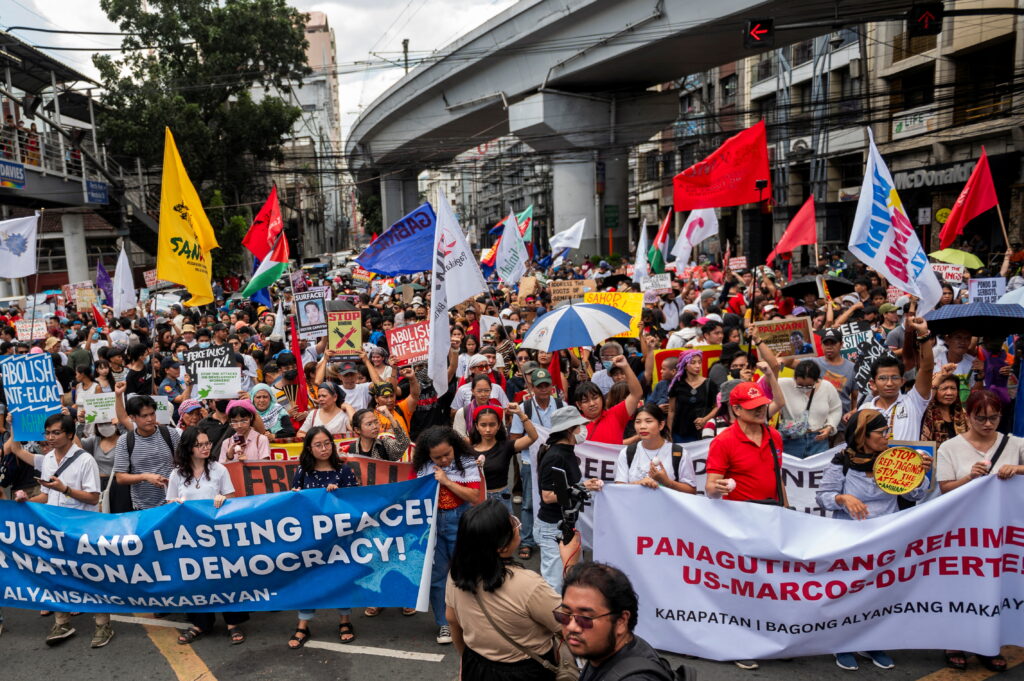
From February 22-26, 2021, the Thomson Reuters Foundation (TRF) held an online workshop for a select group of Indian journalists. The workshop offered full-time journalists an opportunity to build expertise in reporting on human trafficking in India, drawing on contemporary best practices.
The intensive, online programme ran over five days. The format comprised of a mix of instructor-facilitated group sessions with individual and group tasks, sessions with subject matter experts and a pitching session for story ideas incorporating learnings from the workshop.
Below is a reflection from one of the participants following their completion of the programme.
By Neelam Gaur, Multimedia Journalist, Newsclick
Labour has been the trope of recent times. This is unsurprising, as the pandemic-induced lockdown, imposed countrywide exactly around this time last year, had triggered what was reportedly the largest migrant ‘crisis’ since India’s Partition. The episode, shocks of which still loom over the economy, brought to the fore the figure of the ‘migrant’ – visible only economically with no political voice. However, what was more, the distressing accounts of the labouring population also effectively shed light on the different forms of work that are being performed in this day and age under the menace of economic precarity.
It was against this backdrop that I was first told about the Thomson Reuters Foundation’s ‘Reporting on Human Trafficking’ training programme for journalists in India. It presented a unique opportunity to understand the nuances of modern-day slavery, which is particularly prevalent in a country estimated to have 18.4 million people living in slavery, according to the 2016 Global Slavery Index.
True to its words, the five-day training programme focused on numerous aspects pertaining to ‘human trafficking’ and ‘modern slavery’ – starting from the technical definitions, accepted worldwide, of the said concepts and then moving on to investigating the very style of reporting. Accompanied by well-informed guest speakers and informative study material, our chief mentors – Kavita Chandran and Monica Jha – didn’t allow the challenges posed by an online interaction to get in the way of the knowledge that was to be imparted.
Having engaged in the past with the subject during my own journalistic experience, I was aware of the ordeal of bonded labour. The training programme, by allowing participants to encounter survivors own experiences, highlighted the significance of having to be more sensitive while reporting on the personal lives of trafficking survivors.
What’s more, the session on ‘story pitching’ was of great value because it provided me with the focal points of organising a vague idea into a well-thought project plan.
All in all, the training programme prompted me to sharpen my understanding of modern slavery victims and their work conditions. The programme also afforded me the opportunity to connect with my fellow trainees – some of the most dedicated minds currently active in the Indian journalism field. I look forward to working on a collaborative project with them.
More News
View All
Five takeaways from the 2025 International Journalism Festival in Perugia
Remarkable solidarity…
Read More
How ‘foreign agent’ laws are silencing independent media
We explore the growing threat of ‘foreign agent’…
Read More
Unpacking the regional trends of the Index of Pro Bono 2024
We take a look at the long-term trends on pro…
Read More
2024 Index of Pro Bono findings revealed
The 2024 Index of Pro Bono, compiling comprehensive data representing nearly…
Read More
Journalists cautiously optimistic about the effect of AI on the profession, our new report finds
Our new TRF Insights report sheds light on the opportunities and challenges of AI…
Read More
Thomson Reuters Foundation announces new members of the Board of Trustees
Two new trustees have…
Read More
Why strengthening access to the law is critical to protecting human rights
On Human Rights Day,…
Read More
Reflections on COP29
Jack Graham, Context’s Deputy Editor for Funded Projects, shares his reflections from this year’s COP29 conference.
Read More
Thomson Reuters Foundation and UNESCO partner to drive responsible corporate AI adoption
The Thomson Reuters Foundation and UNESCO have partnered to launch the AI…
Read More
Announcing this year’s line-up for Trust Conference 2024
How do we defend democracy and trust in…
Read More

